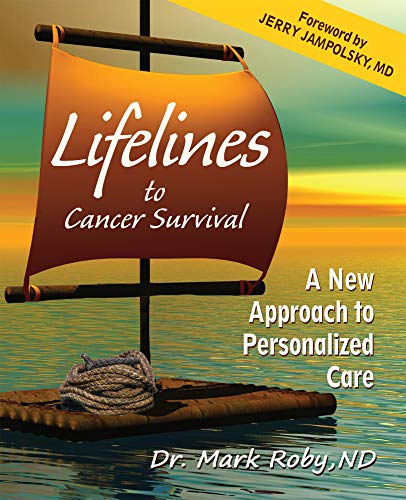 Each day in the United States, almost 1,600 adults and kids—enough to fill four jumbo jets—die of cancer. (1) Why are these patients allowed to crash and die? We have put people on the moon. We have sent rovers to Mars. Why, in the 21st century, are we throwing up our hands and saying, “There is nothing more we can do”?
Each day in the United States, almost 1,600 adults and kids—enough to fill four jumbo jets—die of cancer. (1) Why are these patients allowed to crash and die? We have put people on the moon. We have sent rovers to Mars. Why, in the 21st century, are we throwing up our hands and saying, “There is nothing more we can do”?
Cancer patients need answers and they need them now. Lifelines to Cancer Survival bridges the gap from the old world of cancer care to a new, revolutionary way of thinking. What is this new way of thinking, and how is it transforming cancer survival?
It’s a way of thinking that empowers you with what I call “lifelines.” Lifelines are tools, strategies, and individuals that can help increase your survival time. They can be anything from simple anticancer nutrition, to the latest, cutting-edge genetic profiles and targeted treatments.
The current standard of care can fall short. It often does not include the following individualized tests and treatments that could lead to safer, more effective care:
- Personalized molecular profiles—genetic fingerprints of the potential therapeutic targets of your specific cancer
- Anticancer nutrition—evidence-based natural therapies that attack inflammation and blood vessel growth in your tumor(s)
- Integrative medicine—natural, more holistic modalities to address stress and the side effects of chemo and radiation, along with spirituality
- Chemosensitivity assays—samples of your living tumor or liquid/blood cancer that have been examined and tested to assess your cancer’s response to both older and newer anti-cancer treatments
Your cancer care should include these elements and so much more. My experience in my own survival, and in counseling countless cancer patients over the years, has taught me that staying alive includes much more than a biopsy, chemotherapy, and surgery.

